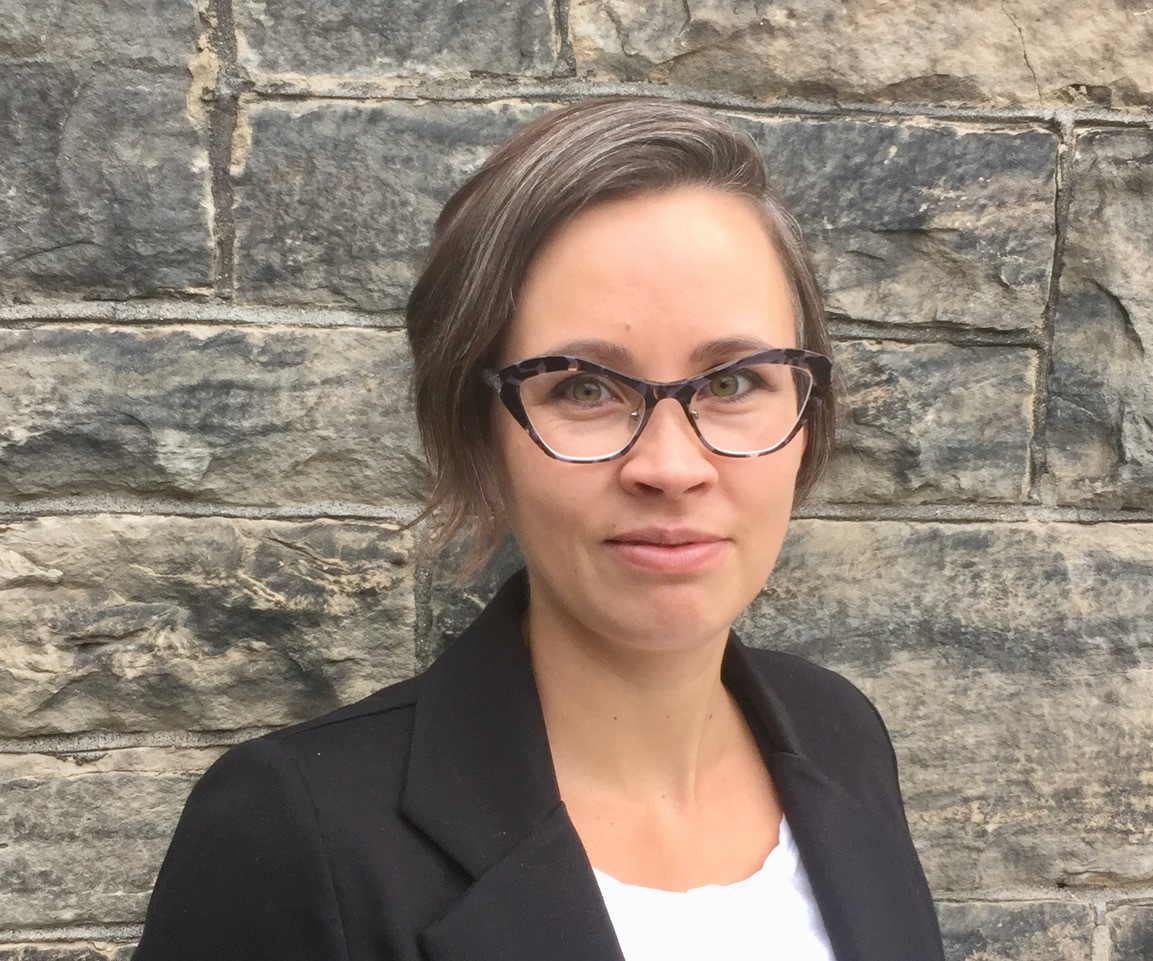2024 Phase 2 Catalyst and Research Development Grant Recipients
The Institute of Health Emergencies and Pandemics (formerly the Institute for Pandemics), in partnership with the Emerging & Pandemic Infections Consortium (EPIC), is pleased to announce the eleven recipients of the 2024 Phase 2 Catalyst and Research Development Grants.
The purpose of the up to $50,000 grants is to help U of T researchers from multiple disciplines connect and collaborate on projects pertaining to pandemic readiness, resilience, and recovery. It provides seed funding to support collaborative, interdisciplinary research projects which represent a step towards the pursuit of more comprehensive applications to external funding opportunities.
Individuals from government, not-for-profit and the private sector interested in collaborating with these investigators are encouraged to message ihep.dlsph@utoronto.ca to discuss opportunities for engagement.
List of the awarded projects
Addressing Health Inequities for Black and Racialized Immigrants with Disabilities During and Beyond COVID-19 in Ontario

Chavon Niles, Temerty Faculty of Medicine; Susan Jaglal, Temerty Faculty of Medicine; Lance T. McCready, Ontario Institute for Studies in Education; Notisha Massaquoi, University of Toronto Scarborough
The COVID-19 pandemic has exposed and intensified systemic inequities in healthcare access and outcomes, particularly affecting marginalized communities (Subedi, Greenberg, and Turcotte, 2020). Our study, ""Addressing Health Inequities for Black and Racialized Immigrants with Disabilities During and Beyond COVID-19 in Ontario,"" seeks to understand how intersecting forms of oppression—such as race, disability, and immigrant status—compound the challenges faced by these groups in Ontario. We will explore the structural barriers that hinder their access to healthcare, rehabilitation, and social services, while documenting broader impacts on mental health, access to care, and economic stability.
Using narrative inquiry and storytelling, we will conduct in-depth interviews to center the voices of Black and racialized immigrants with disabilities, making their lived experiences the focal point of our analysis. This approach challenges dominant societal narratives that often marginalize or erase these communities, ensuring that our findings reflect the full complexity of their realities (Dossa, 2009). The insights gained will inform the development of culturally responsive health interventions and policies.
This research is vital for shaping a pandemic recovery that addresses these systemic gaps. By prioritizing the needs and recommendations of Black and racialized immigrants with disabilities, we aim to contribute to the creation of a more inclusive and equitable healthcare system. The study’s outcomes will support strategies to ensure that all community members, regardless of background or ability, receive the care they need, fostering a stronger and more just post-pandemic society.
Empowering Recovery: Enhancing Health Literacy and Social Networks for Black Gay, Bisexual, MSM (BGBM) in Ontario

Lance T. McCready, Ontario Institute for Studies in Education; Notisha Massaquoi, University of Toronto Scarborough
This research project, led by Dr. Lance McCready and Dr. Notisha Massaquoi in collaboration with the Black Gay Men’s Network of Ontario (BGMN), aims to enhance pandemic resilience and recovery among Black gay, bisexual, MSM (BGBM) in Ontario by focusing on two critical areas: health literacy and social networks. The COVID-19 pandemic disproportionately impacted two spirit, lesbian, gay, bisexual, transgender, intersex, queer and additional people who identify as part of sexual and gender diverse communities (2SLGBTQIA+), specifically BGBM exacerbating long-standing health disparities, particularly related to HIV/AIDS and other sexually transmitted infections (STIs), while straining existing support systems. Building on BGMN’s successful virtual programming developed during the pandemic, this project will repurpose this content and develop new content and events using a popular education framework to improve BGBM health literacy and foster social connections. The project will use a community-based participatory research approach that involves community members in all stages of the research, ensuring that the interventions are culturally relevant and responsive to the needs of BGBM in Ontario. This project will generate evidence on how enhanced health literacy and strengthened social support networks can contribute to pandemic recovery and readiness. The outcomes of this research will provide actionable strategies for reducing health disparities and improving access to care, ensuring that BGBM are better equipped to navigate future health crises. This project not only addresses immediate recovery needs but also contributes to the long-term resilience of a historically marginalized community, offering insights that can inform broader public health initiatives.
Evaluating Equity-Focused Impacts of COVID-19 Pandemic on Childhood and Youth Mental Health in Canada: A novel application of spatial causal inference methods

Kuan Liu, Dalla Lana School of Public Health; Geoffrey Anderson, Dalla Lana School of Public Health; Jennifer Jenkins, Temerty Faculty of Medicine; Beverley Essue, Dalla Lana School of Public Health
It is now widely understood that the pandemic precipitated an unprecedented mental health crisis among children and youth both in Canada and around the world. However, there is little evidence on the long-term impact that pandemic containment measures have had on childhood and youth mental health. Our study aims to evaluate changes in the mental health of children and youth in Canada pre- and post-pandemic, the potential causal role that education disruption played, and identify who were most affected. To that end, we analyze Ontario electronic health records data linked with administrative population data on demographic and socioeconomic variables, to: i) characterize changes in mental health outcomes among school-aged children and youth from before the pandemic to during/after the pandemic, ii) estimate the role that education disruption played on the decline of the mental health, and iii) identify significant unexplained disparities in adverse mental health outcomes between adjacent census tracts within Ontario.
Evaluating the long-term causal impact and the dynamic role of neighbourhood social vulnerability are challenging and require a novel interdisciplinary approach. Our research team brings diverse expertise spanning biostatistics, psychopathology, health services research and epidemiology. Our study fits under the pandemic recovery theme. It addresses the pressing need to understand the long-lasting consequences of the pandemic at both community and population levels to infer post-pandemic mental health services needs and to inform recovery intervention and policies to improve health for all.
Flexible, Rapidly Configurable Health Information Technology for Pandemic Response

Karim Keshavjee, Dalla Lana School of Public Health; Yalini Senathirajah, Dalla Lana School of Public Health; Wendy Nelson, Dalla Lana School of Public Health
Electronic health records (EHRs/EMRs), are central to healthcare delivery. During a pandemic, EHR technology must adapt to unpredictable changing disease definitions, new manifestations, daily discoveries, and emergent needs, including coordination with public health experts. Currently, making changes or new functions in EHRs can take hours to weeks, and must be done by vendor or in-house programmers, taking time, with potential miscommunication between clinicians and IT staff. This can hamper timely responses in adapting EHRs for rapid patient risk assessment and treatment. The time lost can be critical in a pandemic.
We will test an innovative ‘composable’ EHR add-on drag/drop platform which gives nonprogrammer clinicians or public health end users the ability to adapt the health IT themselves, rapidly (in minutes) letting them create and share new tools, interfaces, data, and visualizations. It supports rapid EMR changes by clinicians as clinical protocols evolve, with automated data gathering. Realistic simulation scenarios of emergent pandemic conditions will be used to test the technology with clinicians and public health experts to assess usability and fit to task, and further explore its reception and feasibility via in-depth interviews/surveys with other stakeholders, including equity-deserving patients, and decision makers from policy, IT, management, and vendor personnel. This will evaluate perceptions, feasibility, new functions needed (especially re: equity), policy or other changes needed, and likely effects on future pandemic readiness. The innovation also has benefits for usability and clinician efficiency so there is a solid rationale for its use in non-pandemic times, in place for future emergencies.
Global Impact of Drug Shortages on Infectious Disease Treatments and Vaccines

Mina Tadrous, Leslie Dan Faculty of Pharmacy; Nelson Lee, Dalla Lana School of Public Health; Jeff Kwong, Temerty Faculty of Medicine; Quinn Grundy, Bloomberg Faculty of Nursing; Jillian Kohler, Leslie Dan Faculty of Pharmacy
Our project aims to analyze the global impact of drug shortages across 60 countries, particularly focusing on infectious disease treatments and vaccines. During the COVID-19 pandemic, global supply chains were tested with rapid surges in demand and subsequent supply chain breakdowns. The importance of infectious disease treatments and vaccinations was further emphasized during this time as a mechanism for safeguarding public health during a global pandemic. Using the IQVIA MIDAS dataset, we will compare the effects of known global shortages on different countries and identify patterns and vulnerabilities in global drug supply chains to ensure future pandemic readiness and recovery. This will build on our previous work where we developed a risk framework and at-risk medicines list in response to the growing concern of drug shortages. Our broad effort to protect the Canadian drug supply and encouraging future policies will be complemented by this work focusing on critical areas of interest. Our consistent collaboration with health system partners such as national and international ministries of health will ensure future pandemic resilience. This research will provide essential insights that can inform policies to mitigate future shortages and ensure equitable access to essential medications around the world.
Improving resilience to misinformation to facilitate effective communication with the public

Li Shu, Faculty of Applied Science & Engineering; Matthew Feinberg, Rotman School of Management
Combining the systematic approach of engineering design and prototyping with behavioral-science insights, we address three challenges for pandemic resilience: 1) confirmation bias when people consume information, 2) misinformation that has taken hold in individuals, and 3) social conformity to behave in ways inconsistent with accurate information.
Individuals are subject to confirmation bias when they assimilate information. For example, those who do not (want to) believe that a disease is harmful will seek and preferentially attend to information that minimizes harm. We will develop and test new interventions that help people overcome such confirmation bias.
Misinformation has led many people to hold incorrect views about pandemic-relevant topics. Simply providing the correct information is unlikely to help. Instead, conversations where such people reflect on their reasoning and motivation, have been shown to succeed in changing minds. However, such conversations are time and labor-intensive. We propose developing chatbots to examine whether they can be programmed to change the minds of those with deeply entrenched and inaccurate views.
Finally, even with accurate information, many people struggle to act consistently with that information when those around them do not. We aim to design, prototype, and test technology-based interventions to help people overcome harmful social conformity. For example, video displays of people performing behaviors that are consistent with accurate information, may be optimally situated in a physical environment to create the social proof that may otherwise not exist.
Addressing challenges in how accurate information may be sought, internalized, and translated to behavior will improve pandemic resilience.
Leveraging Data Science to Improve Vaccine Equity and Pandemic Preparedness among Children Who are Newcomers to Canada

Shaun Morris, Temerty Faculty of Medicine; Mariano Consens, Faculty of Applied Science & Engineering; Pierre-Philippe Piché-Renaud, Temerty Faculty of Medicine
Immunization is one of the most important tools to support healthy childhood, benefiting both individuals and populations. Pandemic preparedness requires understanding of whose immunizations are complete and whose have gaps. Vaccine records for the many migrants that Canada receives each year may be in other languages, scripts, and formats, making their translation and interpretation more challenging and time-consuming than most providers and public health units can handle. The resulting immunization documentation delays posed by translation and interpretation challenges introduce infectious disease-related risks to individuals and populations both during, and between, pandemics and can prevent children’s access to school in Ontario due to provincial legislation. As a result, many newcomer families that are already at elevated risk of vaccine-preventable diseases experience delays in updating their children’s routine vaccines, entering school, and integrating into their new communities, thus exacerbating inequity, and limiting pandemic readiness.
Pandemic Impact Statements: Addressing Workplace Inequities to Facilitate an Equitable Recovery (PHASE 2)

András Tilcsik, Rotman School of Management; Angelina Grigoryeva, University of Toronto Scarborough
The COVID-19 pandemic exposed and intensified workplace inequalities, disproportionately affecting women and racialized workers. Organizations widely adopted pandemic impact statements to contextualize employees’ work performance and promote fairer evaluations, but the effectiveness of these statements in addressing inequities remains uncertain. Pandemic impact statements may reinforce stereotypes by highlighting caregiving roles, potentially harming women and racialized workers. Additionally, marginalized employees may be less likely to use these statements, potentially worsening existing inequities.
Our research examines the effect of pandemic impact statements on workplace inequities. We seek to understand if these statements contribute to an equitable pandemic recovery or exacerbate disparities and how decision-makers can implement more equitable employee performance evaluations during future pandemics.
In Phase 1, supported by the Institute for Pandemics, we launched three studies and met or exceeded all our milestones. In Phase 2, we will continue to build on this work by (a) completing the analysis for each study, (b) drafting working papers based on the findings, and (c) applying for an SSHRC Connection Grant for knowledge mobilization. Our analyses will help determine whether pandemic impact statements affect demographic groups differently (e.g., men versus women), how they influence workplace inequalities, and how organizational guidelines given to evaluators can make the use of pandemic impact statements more consistent and equitable.
Ultimately, this research will provide insights into workplace interventions for equitable pandemic recovery. The findings will benefit researchers, managers, and university administrators while also enhancing the research and collaboration skills of our trainees at all levels.
Social Outcomes Partnerships for resilient health systems: What can Canada learn from cross-sector partnerships with private, nongovernmental, and charitable providers?

Teresa Kramarz, Faculty of Arts & Science; Stefanie Tan, Dalla Lana School of Public Health; Sara Allin, Dalla Lana School of Public Health; Brian Baigrie, Faculty of Arts & Science; Paul Kudlow, Temerty Faculty of Medicine
This project seeks to understand how health system decision makers and researchers can work with new partners outside of government to strengthen the resilience of the Canadian health systems to shocks like public health emergencies. Specifically, we look at a new form of strategic partnership called Social Outcomes Partnerships (SOPs), that allow governments to provide funding and oversight for private sector organizations, including charities, to deliver health services and programs. SOPs include outcomes-based contracts, a term used to describe formal partnerships between the government and private, non-profit, or charitable sector organizations to deliver health services to patients, such as public health interventions that improve Type 2 Diabetes management or improve cardiovascular health. We will study these partnerships across Canada, and the United Kingdom to learn about the benefits and drawbacks of working with private, non-profit or charitable organizations to deliver health services. Through this research we will identify tools that governments and planners can use to improve collaborations with non-governmental actors during public health emergencies and in normal times. Further funding from the Institute for Pandemics (IfP) building on our first Catalyst grant will support the development and expansion of a network of interdisciplinary scholars in Canada, and internationally, in conducting this novel research. This work has potential to inform policy design and implementation for Canada with the aim of strengthening health system resilience.
Systematic gap mapping and evidence syntheses to inform policy decisions on the role and impacts of plastics in health products for pandemic planning and response

Quinn Grundy, Bloomberg Faculty of Nursing; Mina Tadrous, Leslie Dan Faculty of Pharmacy; Gillian Parker, Dalla Lana School of Public Health
The global distribution of life-saving vaccines and health supplies were pivotal to the global COVID-19 pandemic response. To ready for future pandemics, global health systems are grappling with how to ensure equitable and sustainable access to these critical supplies. One consequence of relying on single-use and disposable supplies for infection control and prevention is the generation of tens of thousands of tonnes of excess medical plastic waste.1 In March 2022, the United Nations Environment Assembly called for an internationally legally binding treaty on plastic pollution that addresses the life cycle of its design, production, and disposal.2 The World Health Organization (WHO), an observer to the treaty negotiations, seeks a balance between mitigating the harmful effects of plastics on the environment and human health while assuring equitable access to healthcare products. To support the development of WHO policy positions, a team of researchers and trainees will undertake work in collaboration with WHO staff to systematically map the available evidence on the role and impact of plastics in products necessary for pandemic readiness and response and will conduct in-depth evidence syntheses focused on plastics used in vaccine packaging and administration, and personal protective equipment. This project will culminate in a research agenda setting workshop with members of the Institute for Pandemics, the WHO Collaborating Centre for Governance, Transparency, and Accountability in the Pharmaceutical Sector and WHO staff, culminating in a Partnership Grant (SSHRC) or Project Grant (CIHR) proposal.
Transforming Patient and Provider Experiences into Actionable Insights for Pandemic Readiness, Resilience, and Recovery with an AI-Enabled Hospital System

Zahra Shakeri, Dalla Lana School of Public Health; Dionne M. Aleman, Faculty of Applied Science & Engineering
Hospitals are the cornerstone of our health systems, providing critical support during public health crises. Ensuring the preparedness and resiliency of their operations is paramount for extended pandemic responses and ongoing recovery. During these critical moments of change, health systems must effectively adapt to daily challenges, ensuring practices are responsive, equitable, and sustainable. As frontlines during public health emergencies, they must recover quickly and sustain operations, continuously learning and adapting to provide safe and uninterrupted services. Critical insights on overall health system functioning, including aspects related to safety, timeliness, efficiency, equity, and staff wellbeing, can be derived from patient and provider experiences.
Prior research by our team explored the use of a large-scale dataset of 120,000 patient experience records collected from 45 Ontario hospitals to identify system strengths, gaps, and opportunities for improvement. Leveraging machine learning models for textual data, we identified factors influencing patient satisfaction both during and outside of the COVID-19 pandemic. After successfully designing methods to mitigate the effects of selection and social biases in patient experience records, and developing analytic approaches to derive actionable insights from this unstructured data, our next phase is focused on studying the integration of our analytic platform within health systems. By collaborating with health institutions in Ontario, we aim to evaluate the performance of an intelligent hospital platform that leverages real-time experience data from patients and care providers. With plans for nationwide expansion, this system will help promote equitable, responsive, and resilient health systems, improving health outcomes for all Canadians.
